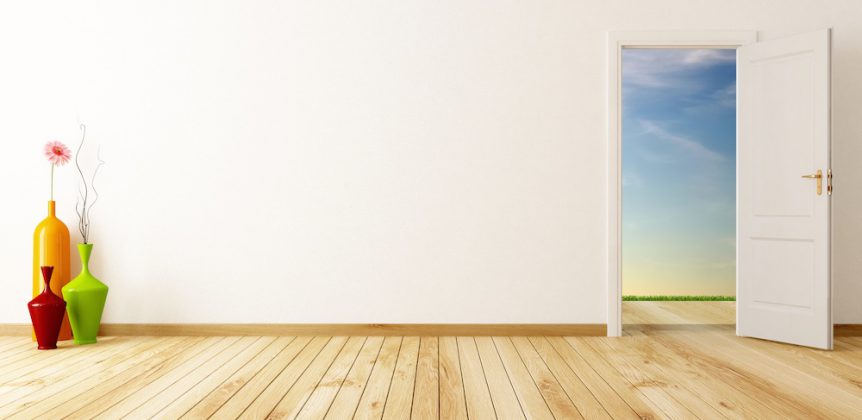It’s easy to think that unoccupied properties don’t require any attention. You’re 100% turnkey, just lock the door behind you. Well, in reality, not every place is set up to “lock and walk.” Condos and apartments, perhaps, may be in a better position to sit without occupancy for some length of time, but an unoccupied home presents its own set of challenges.
For instance, what happens to a garden that is left untended for several months? Even with battery-operated timers on drip systems, things can go wrong. If you’ve invested in a second home, holiday home, or additional estates to add to your portfolio, remember that those properties require attention, maintenance and cost while unoccupied.
Unoccupied properties are vulnerable. The longer they are left unoccupied, the higher the risk of something unfortunate happening to them, both inside and out. From deferred maintenance (think a dripping toilet slowly soaking a sub-floor) to pests (termites eating away) to security, there are a number of things to consider.
What can happen to an unoccupied home and how can you safeguard yourself and your property from mishaps and problems? Read on for our ultimate guide on maintaining your unoccupied home and give yourself peace of mind! Or at least a head start on your to-do list.
The Risks of Leaving a Home Unoccupied
What are the risks of owning a vacant, unoccupied house?
A home left unattended will start to deteriorate over time. An un-repaired crack in the wall, for example, is likely to get bigger. Tree roots may grow out of control rupturing a sewer line or drop a limb damaging a gutter, causing damage to your property or necessitating more money to maintain in the long run. Pests can move in (and live in your walls until their dying day). A pipe may start leaking without anyone around to notice it.
When a home is left unoccupied and unattended, potential risks can easily be realized. If someone is around to notice these issues, they can be dealt with. If the home is truly unoccupied, however, these problems are likely to metastasize and spiral.
What can happen to an empty house?
Anything can happen to an empty house! It’s at risk of theft, vandalism, deterioration, weather damage, broken appliances, or damaged pipes, wires and structural elements. Things can and do go wrong whether someone is around or not.
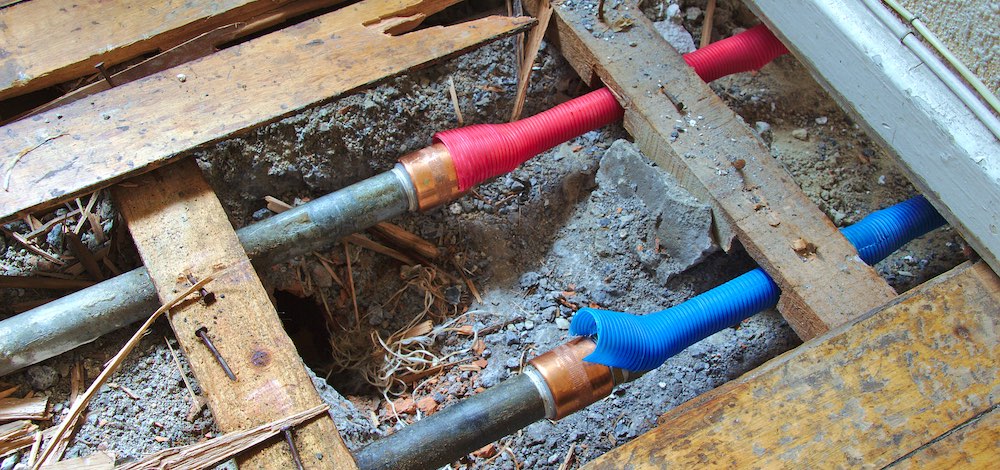
What type of structural damage is common for empty houses?
The most common damage to empty houses is caused by:
- Water damage from leaking or broken pipes
- Heating systems breaking down
- Frozen pipes
- Mold and fungus
- Termites and other pests
What happens when the temperature isn’t controlled in an empty house?
A house left with no temperature control is at risk of experiencing frozen or burst pipes during cold periods. Whether a primary residence or vacation getaway, a long, cold winter could prove especially harsh.
During hot periods, mold is encouraged to grow, especially in humid environments. This can be exacerbated by the locale. On Maui’s north shore for instance, it’s a never-ending battle against mold for an on-site resident (as we’ve discovered!).
How do I mitigate the risk of an unoccupied home?
There are many ways to protect your home while you are away from it. Some popular ways to maintain an empty home include:
- Keeping the temperature ambient
- Investing in internet-enabled security or surveillance
- Having someone nearby regularly check on the property
- Hiring someone to maintain the garden
- Removing all food items that might attract pests
- Ensuring windows and doors are securely locked
- Turning off and unplugging appliances
- Hiring a house-sitter to look after your property
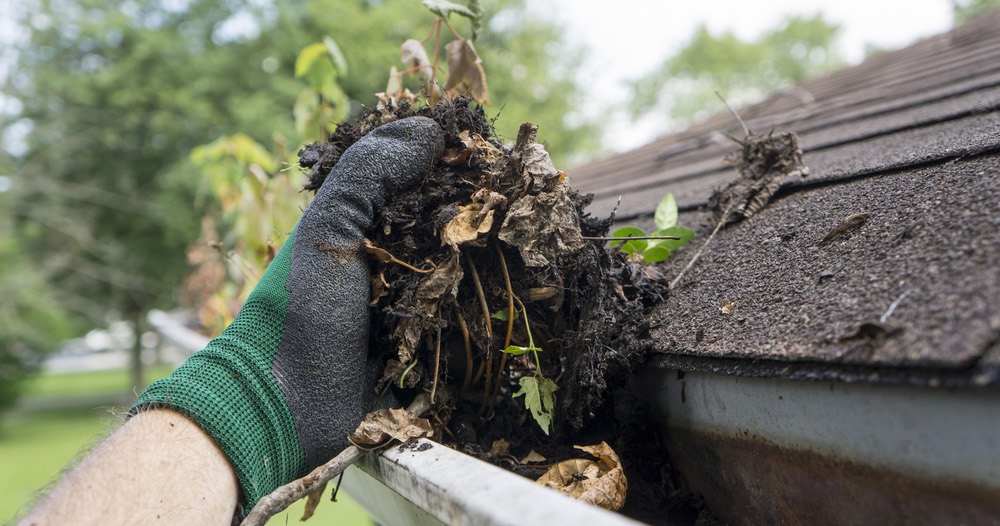
Who takes care of repairs and maintenance while I’m gone?
A great way to keep the property maintained is by hiring a qualified house-sitter. While some house-sitters may have actual handyman experience, at the very least you have someone onsite to coordinate with your local vendors.
Another way is to have someone you trust check on the property and carry out any necessary repairs. That may be a big ask, or you might have just the right person in mind who can use a few bucks to help you with your unoccupied property.
How do I winterize an empty house?
Summer houses are great for warm and relaxing vacations but they are at high risk during the cold season and rainy season. A way to mitigate issues caused by cold weather is to “winterize” your unoccupied home:
- Adjust your thermostat so it maintains an ambient temperature
- Shut off the main water valve to your home
- Turn off the gas
- Check the sump pump is working efficiently
- Unplug everything
- Remove all food and consumables
- Remove all trash and waste
- Clean thoroughly, packing away bedding, towels, and blankets
- Test your security system
- Inform the neighbors that the house is unoccupied
Owning pets in an unoccupied home
What do I do with my pets while I’m away from my house?
Pets are very sensitive to change or being left alone. Food and water considerations aside, domestic animals can suffer from separation anxiety and other health problems if they are by themselves. Therefore, the best thing to do with your pets is take them with you.
If this isn’t possible, you can hire a house-sitter. Since they will be staying in your home, they will be able to care for your pets and give them the attention they require. Some house-sitters have specialties or preferences, such as large animals or reptiles or big friendly doggies.
Kennels or other pet boarding houses are not recommended long-term as the animal is likely to suffer in some way, at least from the separation and change in location and routine, no matter how well kept the facilities are.
Dealing with mail
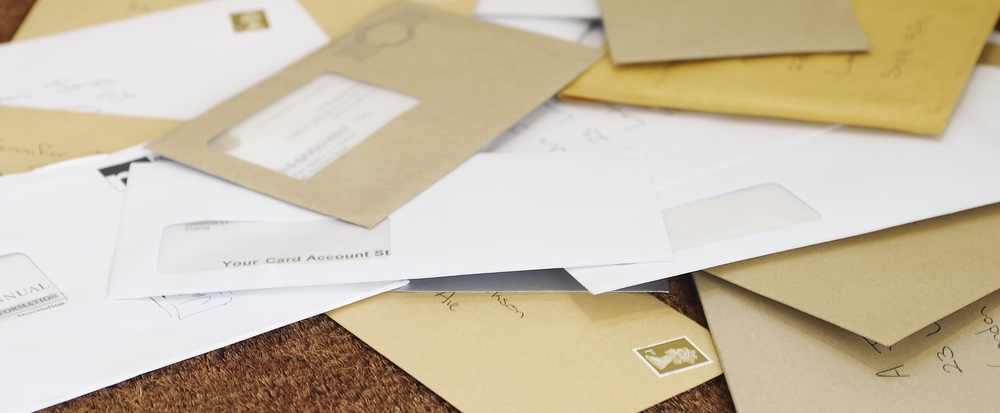
Should I discontinue my mail/newspaper?
If you don’t have anyone to collect your mail, it’s a good idea to put a hold on your mail with the post office or get it redirected. You should also suspend your newspaper subscriptions while the house is empty. Mail and newspapers piled up on a doormat is a signal to thieves that your home is an easy target. Make sure you can view statements and pay your bills online, and consider setting up calendar reminders so you don’t miss a payment.
How do I access my mail while I’m away?
USPS will allow you to arrange for a 3rd party individual to pick up your mail. You can also request to have it forwarded to another address. You might also look into various Mail Scanning Services, which will open up your mail and send you digital versions – these tend to be fairly expensive, but could be a good long-term option.
How long can I put a hold on US mail?
USPS can hold mail for up to 30 days. If longer is required, you need to visit your local post office and request it.
Are mail forwarding services expensive?
Visit the USPS website to find out prices and further information on mail holding and forwarding services. Third-party mail places, such as those with private mailboxes (or PMB’s) may also have options for forwarding mail. For instance, our mail place will forward mail once a month simply for the cost of postage. You’ll have to talk to your local mail service providers to see what services they offer.
How do I make my property look occupied?
Technology, security and surveillance
A crucial aspect of empty house care and security is making your house look occupied. Some ways to do this include:
- Installing timers on your lights
- Not letting mail and newspapers accumulate
- Hiring someone to keep your garden tidy
- Hiring a house sitter to occupy your home
- Setting up internet enabled cameras like Wyze
- Use dummy security cameras for about $10 each
How do I stay connected to my home?
Today’s smart technology means that there are many ways to stay connected to your home while you are away. Most security cameras allow you to view them via an app. You can also control aspects such as your thermostat and lighting with the use of devices such as Nest, Hue or easybulb.
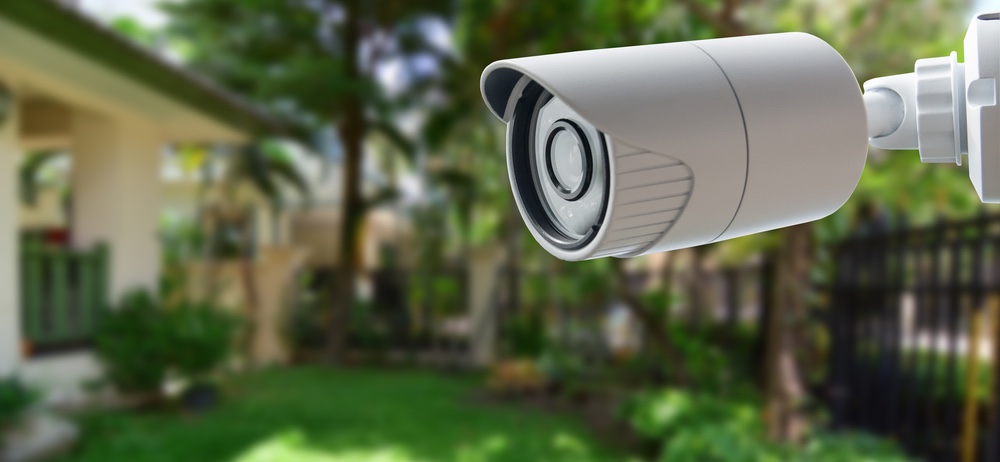
Are security cameras a good idea?
Internet-enabled or cloud security cameras provide an inexpensive and effective way to provide security for an empty house. Installing them is easy and many of them can be viewed via your phone on an app. Dummy security cameras could be a nice addition if your house is visible from the road. Simply screw one to your house and the battery will power a blinking red light for a year or more.
Are security cameras legal?
Security cameras are legal but be mindful of any invasion of privacy that anyone looking after your home might experience. If someone is house sitting or staying in your house, turn your internal cameras off. Cameras also should not be positioned to overlook public land or anyone else’s private property. An exception might be a wildlife camera, as long as you aren’t invading others’ privacy.
How do I set up a timer for my interior and exterior lights?
You can buy timers for your lamps, which sit between the lamp and the outlet. For your overhead lights, you would likely need an electrician to install timer switches. Alternatively, consider investing in smart lightbulbs, which can be operated remotely and don’t require rewiring of your electrics. Lights activated by motion also add security to outside spaces.
Remote access and housesitters
A great place to decide which system is right for you is by viewing top ten lists such as this one for Smart Home Security systems compiled by PCmag.
Is it legal to have security cameras in my home with a house sitter?
While not illegal to have cameras in your home while you have a house-sitter, it’s an invasion of privacy to spy on your house-sitter, so don’t do it. It can land you in trouble. Trust flows in both directions between homeowners and house-sitters.
By choosing a house sitting company such as estatesitting.com where we only work with vetted, qualified and reliable house sitters, you can trust the individual in your home without having to keep an eye on them.
Can I use my Nest with a house sitter?
A house sitter needs to be comfortable in your home. Therefore, it should be up to them to control the temperature and other home elements. Only use your Nest to control the temperature remotely when the home is unoccupied. For instance, you may want to maintain a minimum temperature of between 50°F and 60°F so the house doesn’t get too cold.
It’s appropriate to discuss energy usage with a house-sitter, certainly from a conservation standpoint. However, in the vast majority of cases, homeowners absorb the costs of the energy usage while the house-sitter is in the home.
Will a house sitter help me stay connected to my home?
A house sitter can provide regular feedback and information as requested. It’s part of their job to keep you informed and help you stay connected. Maybe they can even text you a photo of your pooch or the spring blossoms!
Insurance for Unoccupied Homes
Nearly everyone has standard home insurance but be aware that most insurance policies do not cover unoccupied homes for very long. Therefore, you need to invest in a specialist insurance to keep your peace of mind.
What does my home insurance cover?
Most home insurance policies will only cover vacant properties for up to 30 or 60 consecutive days. To cover your unoccupied home, you will need specialist unoccupied home insurance.
Does my homeowners insurance stay the same if am I away?
Your insurance remains the same unless you are away for longer than the allowed time period. If you exceed this time period, part or all of your insurance policy will become invalid.
Does it matter why I am away?
It doesn’t usually matter why you are away, but check with your insurance provider to find out if there are any restrictions.
Are premiums higher for an empty house?
Insurance companies know that the associated risk with empty houses is higher than occupied homes in part due to slower emergency response times, so premiums tend to be higher too.
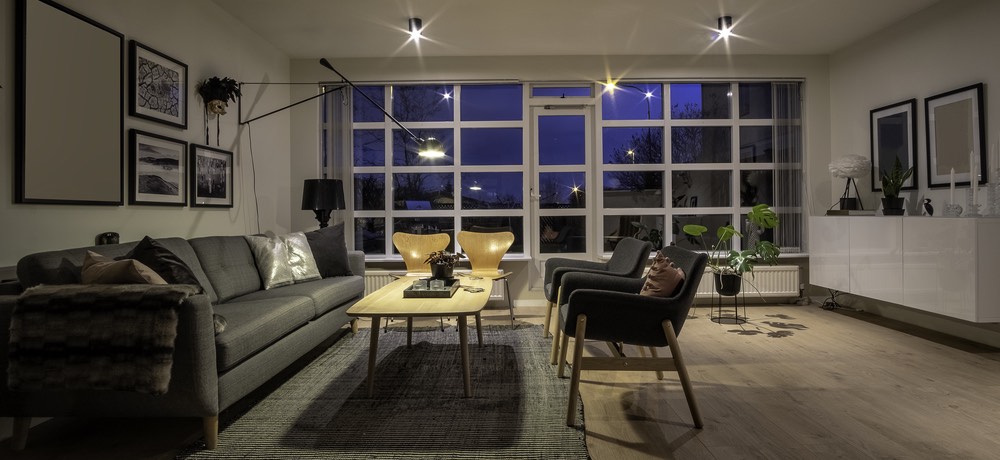
What’s the difference between an unoccupied and vacant home?
An unoccupied home is classed as a residence that contains furniture and can be lived in immediately. A vacant home is usually empty of furniture and cannot be lived in right away.
The risk is considered higher for vacant homes, so vacant home insurance tends to be more expensive than insurance for an unoccupied home.
What is a vacancy clause and when does it kick in?
Home insurance contains a vacancy clause that kicks in after the time allowed for a home to be vacant has passed.
If your home insurance only allows your home to be vacant for 30 days, for example, your cover will be invalid for certain things – such as vandalism, fire, and theft – after the period has expired.
Again, we can’t stress this enough: get in touch with your insurance provider so that you understand what’s covered and what’s not, and what your options might be to get the coverage you need. Don’t rely on this article for decisions that can affect your home and insurance coverage – we’re just trying to point you in the right direction.
How to avoid higher insurance premiums
Having a specialist insurance is one way to cover your home while you are away from it but did you know that hiring a house sitter to stay in your home means that your regular home insurance will remain valid? It’s a great way to keep your existing insurance, maintaining coverage.
Hiring a house sitter
What are the benefits to hiring a housesitter for your unoccupied home?
As well as allowing you to keep your existing home insurance, long-term house sitting is the ideal solution to keep your home maintained and safe while you are away from it. Their job is to look after your property to your liking. There are even luxury house sitting services available that take care of those extra special properties.
House sitting rates can be a lot lower than specialist insurance premiums, mail redirection, extra security and the cost of damage incurred from not having your empty home maintained. These factors make house sitting a cost effective way to keep your home in top condition.
Won’t the house sitters have to leave my property to go to work?
It depends on the house sitting service. Estate Sitting only works with house sitters that work remotely. Their jobs are entirely based online, meaning they can also stay in your home during working hours. Consider your internet connection – having reliable, fast service is essential in attracting high-quality, high-trust house-sitters these days.
How do I find a house sitting service?
If you’re searching for house sitting in California, for instance, Estate Sitting can provide you with high-caliber house sitters. Our house sitters are fully vetted and experienced making them the trusted option for home security and care.
For more information including house sitting costs, contact us! We’re more than happy to answer any questions or address any concerns you may have about house sitting.
We hope this guide has given you the information and advice you need to protect your empty property without it costing the earth. Don’t leave your beautiful home to fend for itself. By investing in technology and services, you can give your property the protection it needs.
Invest in hiring a house sitter and ensure your unoccupied property is placed in trusted and reliable hands 24/7.
LAST UPDATE: JULY 4, 2022

